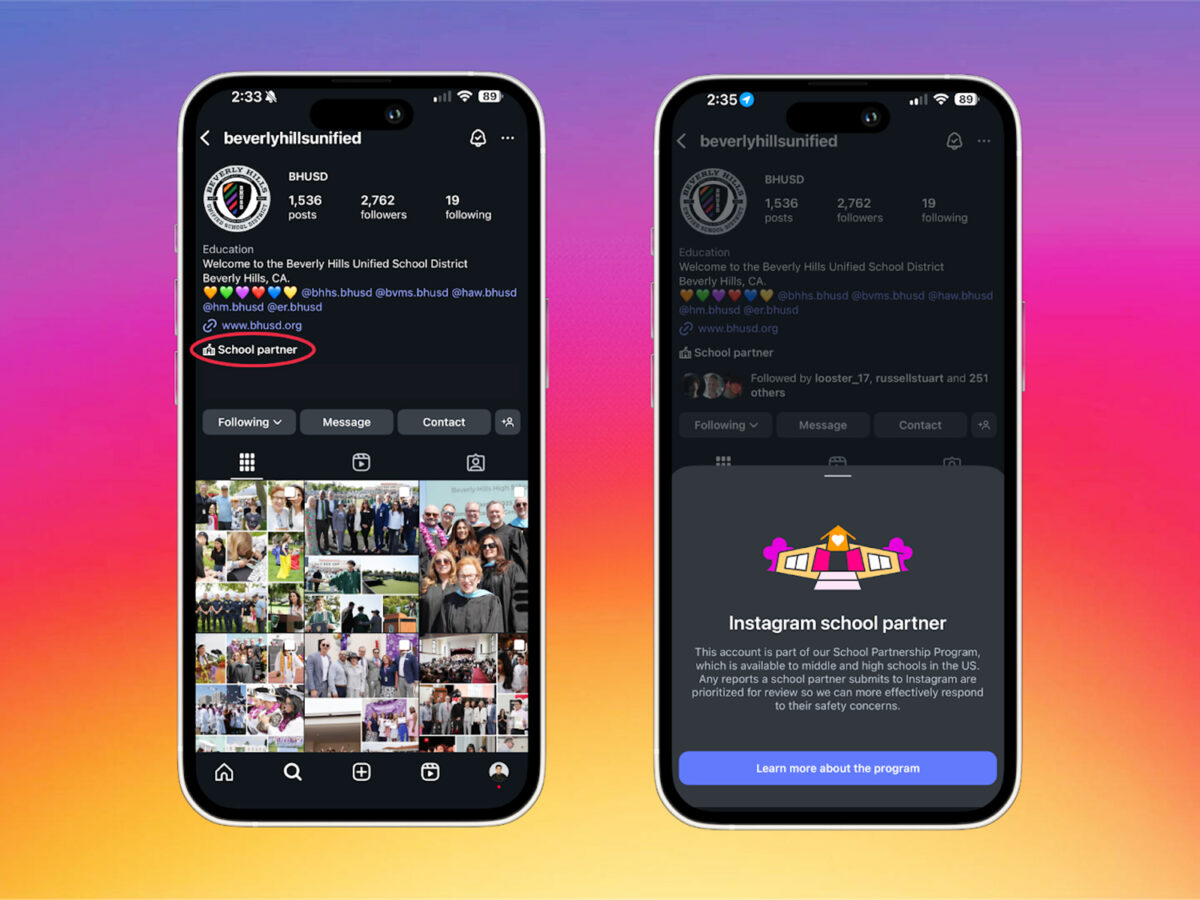How to help teens make the most out of a summer while keeping your household sane
Beverly Hills Courier columnist Jennifer Winward, Ph.D., is a nationally recognized teaching expert, a renowned professor at the University of California, San Diego, and the founder and CEO of Winward Academy (www.winwardacademy.com) an award-winning educational platform supporting middle and high school students with math courses, ACT/SAT prep, and college applications. Dr. Winward has received numerous honors during her 20 years in the field. Her work as an adolescent learning and brain development expert has garnered her recognition as a “Top 5 Female Entrepreneur” by the Women in IT Awards, “Top 40 Under 40” by the San Diego Business Journal, and as the “Most Influential Education Leader” by the San Diego Transcript. Dr. Winward earned her Ph.D. with a dual emphasis in Neuroscience and Developmental Neuropsychology from the University of California, San Diego.
Welcome to summer 2020 where all the plans that you carefully crafted for your teen are now off the table. Travel plans, sleepaway camps, internships and summer jobs are all cancelled in the wake of COVID. Instead, your family is facing a summer spent at home and three months since schools went remote, even binging on Netflix has lost its appeal.
For teens, this summer is likely filled with disappointments, boredom and some angst about what awaits in the fall. Meanwhile, many parents are gripped by anxiety as concerns over learning loss, future college admissions and “summer slide” compound with the latest news that public schools in the Los Angeles school district will be online-only next semester.
As a 20-year veteran teacher, adolescent learning and brain development expert and founder of an e-learning platform for middle and high school students, I have been barraged by questions from overwhelmed parents about how to help their kids exercise their brains, especially given many of them will not return to a classroom for many months. Parents are desperately seeking solutions to keep their kids busy, engaged, productive and off video games.
While this summer is nothing like we’ve experienced before (or hopefully again!) there are many productive, meaningful activities teens can do to prepare for college, stimulate their intellectual curiosity, build life skills and (yes) have some fun.
I suggest encouraging your teen to use this summer to pursue twin goals: 1) prepare for adulthood, and 2) relish the joys of childhood.
Adulting 101
Let this summer be the time when your teen gets a grasp on many of the vital skills he or she will need to get into college and thrive once out the door. Focus on a mix of college readiness, professional preparation and honing often neglected life skills.
College Readiness
The topic most front-and-center for many parents and high school students right now is how to prepare for the college admissions process whether it’s months or a few years away. Here’s where to start:
Research colleges. For rising juniors and seniors, ask your teens to create a list of schools they would consider applying to and specific reasons why they like the colleges. What special courses are taught there? What visiting speakers do they host for symposiums? What are some of the unique opportunities offered to students? Most schools have impressive online tours and comprehensive descriptions of course offerings, extracurriculars and majors. Tracking these details will be important when it comes down to applications and interviews.
Start studying for the ACT/SAT. Given the logistical struggles with these tests, colleges are being flexible for the Class of 2021 to apply without submitting scores if they’re unable to take the exams. That said, rising sophomores and juniors should consider getting ahead of the curve by putting in time to review math equations, learn grammar rules and become stronger readers, so the ACT and SAT will be less stressful when it comes time to take them.
Pursue a subject of particular interest. This is an opportune time for kids to expand their knowledge outside of a classic high school curriculum and explore new passions. Check out online classes and YouTube videos in art, animation, coding, fashion or any other area of interest.
Develop reading skills. Spending an hour per day reading can do wonders to boost reading and writing skills and increase a student’s SAT or ACT score. Encourage teens to find a topic they love and then read five books about that topic. Ideally, teens should read a minimum of 50 pages per day.
Professional acumen
It can be eye-opening for students especially those fixated on getting top grades and test scores that they actually haven’t mastered the skills they will need to succeed in a professional environment. Students can work on cultivating future professional skills in several ways:
Practice public speaking skills. Encourage teens to explore examples of professional presentations online to understand what will be expected of them in a competitive setting. Encourage them to research a subject of interest whether it’s Shakespeare or how to make pickles and deliver a presentation to the family for practice.
Visualize a dream job. Ask teens to think about their dream job and then research job postings online to identify what skills and personality traits are necessary. Encourage kids to create their own LinkedIn profile and delve into the career paths of people they admire or would like to emulate.
Understand financial planning. Teach your teens how to balance a checkbook and explain debt, equity, expense and revenue. They will thank you later.
Life Skills
Sadly, a college degree, or even a killer first job, won’t guarantee that your child will be a valuable member of the grown-up world. Take time this summer to teach them life skills from cooking a balanced meal to getting a stain out of a shirt that will foster a sense of independence and self-sufficiency, and boost confidence. Here are some basic life skills to impart:
Learn basic car maintenance. Be sure your child knows how to pump gas, put air in tires and change a flat tire (or at least how to call AAA).
Practice properly doing laundry. It’s never too early to learn the dryer on hot will make cotton shrink, when to apply stain remover, or what causes dark colors to bleed.
Find a home project to work on as a family. Engage teens in a home improvement project, like building a deck, painting a room or reorganizing closets to donate clothes. You’ll impart life lessons and cross something off your To-Do List.
Learn how to cook. Show your kids how to make a complete meal whether it be a tuna melt, an omelet or fried rice and then have them be in charge of making lunch for the whole household, especially working parents, a few days per week.
Grow your own vegetables. This pandemic has been a boon for first-time vegetable growers. Pick out a few heat-loving plants, such as tomatoes, zucchinis, peppers or cucumbers, and task your child with planting and tending to them.
Reclaiming Childhood
While it’s important to prepare your teens for future adulthood, we don’t want them to grow up so quickly that they miss out on the joys of being young. In their pre-pandemic lives, many teens were overscheduled, overworked and stressed racing from one activity to the next.
One of the most common traits that I see in successful students is intellectual curiosity yet this trait often gets lost when students are perpetually on-the-go. This summer can be a time to help teens slow down and reconnect with what makes them happy and excites their interest.
Consider the following ideas for inspiration:
Go camping, even if it’s only in your backyard. Making s’mores, singing camp folk songs and finding constellations in a phone-free zone can do wonders for the psyche.
Rediscover board games. Bust out the chess board along with old standbys like Pictionary, Boggle and Monopoly, which with just a few hacks, can also work over video conferencing with quarantining relatives.
Find a screen-free activity that makes you lose track of time. Encourage teens to find an activity off-line that totally immerses them, such as reading a good book, journaling, sketching, knitting, practicing yoga or playing the ukulele.
Learn about family history. Encourage your teens to call their grandparents and interview them about their life journey and then creatively document the family history.
Sleep in. Encourage your teen to get at least eight hours of sleep and allow them to sleep in late. While it may drive you crazy, teens’ natural circadian rhythms make them go to bed later and wake up later.
This summer doesn’t have to be a bust for your teen. Instead, it can be a time of growth, discovery and reconnection, all from the comfort and safety of your home.
Follow Dr. Winward on Facebook: www.facebook.com/winwardacademy/







